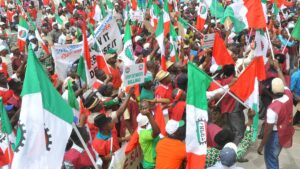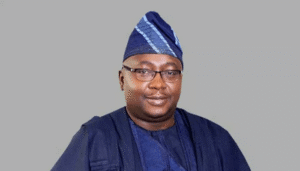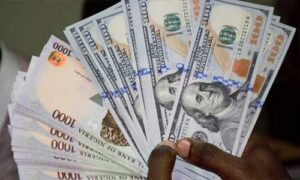BBC detects flaws in data behind Trump’s blacklisting of Nigeria

The British Broadcasting Corporation (BBC) has raised serious questions about the credibility of data used to justify former U.S. President Donald Trump’s decision to place Nigeria on a religious persecution watchlist.
In a recent investigation, the BBC found that figures frequently cited by American politicians — including claims that tens of thousands of Christians have been killed and thousands of churches destroyed — are based on questionable and unverifiable data.
The narrative of Christian persecution in Nigeria gained renewed attention after Vice President Kashim Shettima’s address at the last United Nations General Assembly, where he condemned the violence in Gaza and called for a two-state solution. His remarks coincided with growing international focus on Nigeria’s internal security situation.
U.S. Senator Ted Cruz had earlier alleged that Nigeria’s government was turning a blind eye to what he described as a “Christian genocide.” In a post on X (formerly Twitter), Cruz claimed that “50,000 Christians have been killed since 2009, 2,000 schools and 18,000 churches destroyed,” accusing Nigerian authorities of failing to act.
Those figures reportedly influenced the Trump administration’s decision to redesignate Nigeria as a “Country of Particular Concern” — a status reserved for nations accused of tolerating or engaging in religious persecution.
Last week, Trump reiterated the claim on his Truth Social account, citing a report by the Christian advocacy group Open Doors, which documented 3,100 Christian deaths between October 2023 and October 2024. However, the same report also noted that 2,320 Muslims were killed within the same period — evidence that violence in Nigeria affects multiple faiths.
Open Doors further identified so-called “Fulani Terror Groups” as being responsible for nearly one-third of Christian deaths recorded, but stressed that attacks by these groups increasingly target Muslims as well.
“Christians are still targeted, but increasingly some Muslims are targeted by Fulani militants,” said Frans Veerman, Senior Research Fellow at Open Doors, in a response to the BBC.
The BBC investigation traced many of the widely circulated statistics to the International Society for Civil Liberties and Rule of Law (InterSociety), a Nigerian NGO known for its reports on human rights abuses. However, the broadcaster found that InterSociety’s data collection methods were “opaque” and relied heavily on unverified summaries and estimates from earlier publications.
According to the BBC, this approach makes independent verification of the figures “nearly impossible.”
Security analysts interviewed in the report also dismissed claims of a systematic Christian genocide, explaining that most victims of jihadist attacks in Nigeria have in fact been Muslims. They argued that Nigeria’s violence stems from a complex mix of insurgency, banditry, and communal conflict — not a targeted religious campaign.
The Federal Government of Nigeria has consistently rejected allegations of religious persecution, describing them as a “gross misrepresentation of reality.” Officials maintain that violent extremism affects both Christians and Muslims, and that government forces are committed to protecting all citizens.
Trump recently threatened unspecified action against Nigeria over what he termed “the killing of Christians.” However, the BBC’s findings suggest that much of the data behind such claims may be unreliable and politically motivated.
Source: NewspointNigeria






